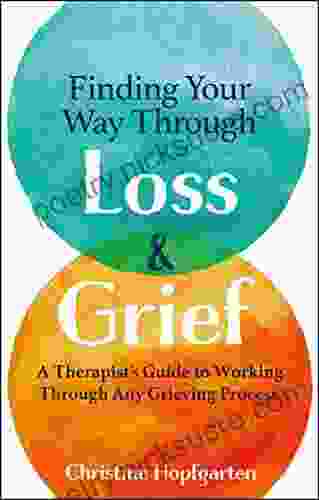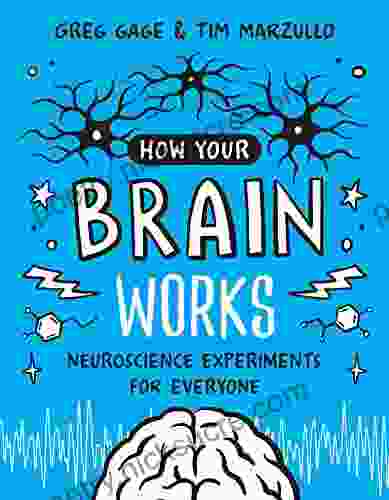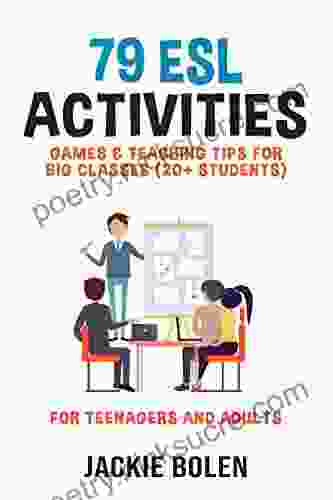How Your Brain Works: Neuroscience Experiments for Everyone

Neuroscience is the scientific study of the nervous system. It includes the study of the brain, spinal cord, and nerves. Neuroscience is a vast field that encompasses many different disciplines, including anatomy, physiology, pharmacology, and psychology. In recent years, neuroscience has made great strides in understanding how the brain works. This article will provide an overview of some of the most important neuroscience experiments for everyone.
4.5 out of 5
| Language | : | English |
| File size | : | 1226 KB |
| Text-to-Speech | : | Enabled |
| Screen Reader | : | Supported |
| Print length | : | 313 pages |
The Neuron
The neuron is the basic unit of the nervous system. Neurons are specialized cells that transmit information throughout the body. They are composed of a cell body, dendrites, and an axon. The cell body contains the nucleus of the neuron. Dendrites are short, branching extensions of the cell body that receive information from other neurons. The axon is a long, slender extension of the cell body that transmits information to other neurons.
Synapses
Synapses are the connections between neurons. They are located at the end of the axon of one neuron and the dendrite of another neuron. When an electrical signal reaches the end of an axon, it causes the release of neurotransmitters. Neurotransmitters are chemicals that bind to receptors on the dendrite of another neuron, causing an electrical signal to be generated in that neuron.
Neurotransmitters
Neurotransmitters are chemicals that are released by neurons to transmit information to other neurons. There are many different types of neurotransmitters, each with its own unique function. Some of the most important neurotransmitters include glutamate, GABA, dopamine, and serotonin.
Brain Regions
The brain is divided into many different regions, each with its own unique function. Some of the most important brain regions include the cerebral cortex, the cerebellum, and the brainstem.
Cerebral Cortex
The cerebral cortex is the outermost layer of the brain. It is responsible for higher-level functions such as thinking, language, and memory.
Cerebellum
The cerebellum is located at the back of the brain. It is responsible for coordination and balance.
Brainstem
The brainstem is located at the base of the brain. It controls vital functions such as breathing, heart rate, and blood pressure.
Neuroscience Experiments
There have been many important neuroscience experiments throughout history. Some of the most famous include:
The Broca-Wernicke Experiments
In the 1860s, Paul Broca and Carl Wernicke conducted a series of experiments on patients with language disorders. They found that damage to the left frontal lobe of the brain impaired speech production (Broca's aphasia),while damage to the left temporal lobe impaired language comprehension (Wernicke's aphasia).
The Wilder Penfield Experiments
In the 1930s, Wilder Penfield conducted a series of experiments on patients with epilepsy. He used electrical stimulation to map the sensory and motor areas of the brain. This research helped to establish the somatosensory and motor homunculi, which are maps of the body in the brain.
The Sperry Split-Brain Experiments
In the 1960s, Roger Sperry conducted a series of experiments on split-brain patients. These patients had their corpus callosum, which is the bundle of fibers that connects the two hemispheres of the brain, severed. Sperry's experiments showed that the two hemispheres of the brain can function independently of each other.
These are just a few of the many important neuroscience experiments that have been conducted throughout history. Neuroscience research is ongoing, and we are constantly learning more about how the brain works.
The brain is a complex and fascinating organ. Neuroscience experiments have helped us to understand how the brain works, but there is still much that we do not know. Continued research in neuroscience will help us to better understand the brain and its role in health and disease.
4.5 out of 5
| Language | : | English |
| File size | : | 1226 KB |
| Text-to-Speech | : | Enabled |
| Screen Reader | : | Supported |
| Print length | : | 313 pages |
Do you want to contribute by writing guest posts on this blog?
Please contact us and send us a resume of previous articles that you have written.
 Fiction
Fiction Non Fiction
Non Fiction Romance
Romance Mystery
Mystery Thriller
Thriller SciFi
SciFi Fantasy
Fantasy Horror
Horror Biography
Biography Selfhelp
Selfhelp Business
Business History
History Classics
Classics Poetry
Poetry Childrens
Childrens Young Adult
Young Adult Educational
Educational Cooking
Cooking Travel
Travel Lifestyle
Lifestyle Spirituality
Spirituality Health
Health Fitness
Fitness Technology
Technology Science
Science Arts
Arts Crafts
Crafts DIY
DIY Gardening
Gardening Petcare
Petcare Rick Page
Rick Page Ford R Bryan
Ford R Bryan Creative Guy
Creative Guy Lily Dunn
Lily Dunn Ken Robinson
Ken Robinson Ellen Painter Dollar
Ellen Painter Dollar Bob Madgic
Bob Madgic Wayne C Booth
Wayne C Booth Clive Scarff
Clive Scarff Dave Whitlock
Dave Whitlock Christelle Dabos
Christelle Dabos Timothy P Schultz
Timothy P Schultz Marjorie Savage
Marjorie Savage Breeda Bermingham
Breeda Bermingham Ben Shneiderman
Ben Shneiderman Bert Mendelson
Bert Mendelson Cade Courtley
Cade Courtley Chris Fregly
Chris Fregly Victor Stringer
Victor Stringer Helen Adrienne
Helen Adrienne Susan G Solomon
Susan G Solomon Rutger Bregman
Rutger Bregman Katharine Beals
Katharine Beals Susan Straub
Susan Straub Charlene Beswick
Charlene Beswick Janine Marsh
Janine Marsh Judy Corry
Judy Corry John Edwards
John Edwards Sparknotes
Sparknotes Tali Sharot
Tali Sharot The Pinnacle Review
The Pinnacle Review Barb Musick
Barb Musick Pradeepa Narayanaswamy
Pradeepa Narayanaswamy Joy Dawson
Joy Dawson L Chapman
L Chapman Steve Bowkett
Steve Bowkett Tara Haelle
Tara Haelle Skeleton Steve
Skeleton Steve Adele Faber
Adele Faber Julie C Meloni
Julie C Meloni Douglas Perry
Douglas Perry Dannah Gresh
Dannah Gresh Worley Faver
Worley Faver Suzanne Clark
Suzanne Clark Scott Allan
Scott Allan Genevieve Mckay
Genevieve Mckay John Dickson
John Dickson Michael Hodgson
Michael Hodgson Helge Kragh
Helge Kragh Freddy Silva
Freddy Silva Krista Marson
Krista Marson Heidi Kreider
Heidi Kreider Les Livingstone
Les Livingstone Charles J Sanders
Charles J Sanders R K Agarwal
R K Agarwal Jean Barbre
Jean Barbre Todd Radom
Todd Radom Nancy Marie White
Nancy Marie White Michael Labossiere
Michael Labossiere Jenny Jacobs
Jenny Jacobs Elisabeth Haich
Elisabeth Haich Thomas A Garrity
Thomas A Garrity Sheela Raja
Sheela Raja Julian Of Norwich
Julian Of Norwich Shawn Shallow
Shawn Shallow Sherry B Ortner
Sherry B Ortner Joshua Shifrin
Joshua Shifrin Kristian Berg
Kristian Berg Stephen J Pyne
Stephen J Pyne Tanmay Mehta
Tanmay Mehta Kennedy Achille
Kennedy Achille Paul Mendelson
Paul Mendelson Stan Gibilisco
Stan Gibilisco Lori L Tharps
Lori L Tharps Jemar Tisby
Jemar Tisby Gary Chapman
Gary Chapman Claire Walter
Claire Walter Aaron Mahnke
Aaron Mahnke Stefan Hollos
Stefan Hollos Linda K Miller
Linda K Miller Nicholas Thomas
Nicholas Thomas Zena Hitz
Zena Hitz Daniel Isberner
Daniel Isberner Steven A Fino
Steven A Fino Ellen Dugan
Ellen Dugan Peter L Falkingham
Peter L Falkingham Shannon Vallor
Shannon Vallor Annalyn Ng
Annalyn Ng Henry Dillon
Henry Dillon Gilbert J Grant Md
Gilbert J Grant Md L J Smith
L J Smith Danny Jones
Danny Jones Silvia M Lindtner
Silvia M Lindtner Illysa R Foster
Illysa R Foster Paul Bloom
Paul Bloom Livia Bitton Jackson
Livia Bitton Jackson Mark Matlock
Mark Matlock Christine Hopfgarten
Christine Hopfgarten Holly Bourne
Holly Bourne Bob Cary
Bob Cary Suzanne I Barchers
Suzanne I Barchers Jenna Evans Welch
Jenna Evans Welch Boye Lafayette De Mente
Boye Lafayette De Mente Dr Sarita Uhr
Dr Sarita Uhr Tim Cahill
Tim Cahill John O Sullivan
John O Sullivan Glen E Clarke
Glen E Clarke Tyler Richards
Tyler Richards Ann Zaprazny
Ann Zaprazny Pierluigi Barrotta
Pierluigi Barrotta Stephen Tarsitano
Stephen Tarsitano Richard Appleton
Richard Appleton Nelson Dellis
Nelson Dellis John Yates
John Yates Adil E Shamoo
Adil E Shamoo Annette Burns
Annette Burns Eleanor J Sullivan
Eleanor J Sullivan Bren Smith
Bren Smith Geryn Childress
Geryn Childress Philip Gibson
Philip Gibson Darcie Little Badger
Darcie Little Badger Helen E Lees
Helen E Lees Jennifer Dugan
Jennifer Dugan Jay Allan
Jay Allan Dan Koboldt
Dan Koboldt Craig Ramsay
Craig Ramsay Carl Mckeating
Carl Mckeating Caroline Miller
Caroline Miller Zach Hunter
Zach Hunter Melissa Mortenson
Melissa Mortenson Naomi Tomky
Naomi Tomky Ichigo Takano
Ichigo Takano Robert A Cook
Robert A Cook Ling Seto
Ling Seto Steve Grant
Steve Grant Justine Gregory Williams
Justine Gregory Williams Stacey Williams
Stacey Williams Arcturus Publishing
Arcturus Publishing Stacey A Shannon
Stacey A Shannon William Goldman
William Goldman Sara Dyer
Sara Dyer June Hur
June Hur Winton Porter
Winton Porter Roger Hall
Roger Hall Reinhard Kleist
Reinhard Kleist Suzanne Girard Eberle
Suzanne Girard Eberle Jackson Carter
Jackson Carter David Berry
David Berry Mordecai Orimiladeye
Mordecai Orimiladeye Zoe Moore
Zoe Moore Joe Hyams
Joe Hyams Finn Aagaard
Finn Aagaard Kate Mcvaugh
Kate Mcvaugh Dean Buonomano
Dean Buonomano J E Esslemont
J E Esslemont Matthew Rudy
Matthew Rudy Martin Meredith
Martin Meredith Sean Covey
Sean Covey Sukhveer Singh
Sukhveer Singh Jonathan Franklin
Jonathan Franklin Seth Stephens Davidowitz
Seth Stephens Davidowitz Joyce Meyer
Joyce Meyer Cathy Glass
Cathy Glass Peter Wacht
Peter Wacht Joanna Wells
Joanna Wells Mishka Shubaly
Mishka Shubaly Harold Davis
Harold Davis Martin N Seif
Martin N Seif Tony Osgood
Tony Osgood Brian Daccord
Brian Daccord Monroe Wildrose
Monroe Wildrose Richard A Ruth
Richard A Ruth Jack Perconte
Jack Perconte Chic Scott
Chic Scott Jay Young
Jay Young Ann Marie Brown
Ann Marie Brown Angela Saini
Angela Saini Sara Wickham
Sara Wickham Gill James
Gill James Geoff Greig
Geoff Greig Scott Shupe
Scott Shupe Matthew Locricchio
Matthew Locricchio Daphne Poltz
Daphne Poltz Kyung Won Chung
Kyung Won Chung M Shawn Copeland
M Shawn Copeland Neel Doshi
Neel Doshi Alexander L Chapman
Alexander L Chapman Ann Voskamp
Ann Voskamp Michael Burnett
Michael Burnett Anne Sylvie Malbrancke
Anne Sylvie Malbrancke Noel D Justice
Noel D Justice C J Brown
C J Brown George James Grinnell
George James Grinnell Patricia Ladis
Patricia Ladis Robert F Boszhardt
Robert F Boszhardt Larry Semento
Larry Semento Chronicle Books
Chronicle Books Hope Comerford
Hope Comerford Holly Chism
Holly Chism Steve Bennett
Steve Bennett Crystal Cook
Crystal Cook Kendall Coyne
Kendall Coyne Chris Gore
Chris Gore Rick Sparkman
Rick Sparkman Marie Cirano
Marie Cirano Mikael Lindnord
Mikael Lindnord Paulo Guillobel
Paulo Guillobel Peter Richmond
Peter Richmond Anna B Doe
Anna B Doe Frances Schultz
Frances Schultz Lexi Ryan
Lexi Ryan Jennifer L Lopez
Jennifer L Lopez Ralph Waldo Emerson
Ralph Waldo Emerson John Gignilliat
John Gignilliat Ian Moulding
Ian Moulding Trevor Hartman
Trevor Hartman Lisa Randall
Lisa Randall W W Sawyer
W W Sawyer L J Martin
L J Martin Lizzie Collingham
Lizzie Collingham Sean Bartram
Sean Bartram Anna Quindlen
Anna Quindlen Linda Lewis Alexander
Linda Lewis Alexander Roy R Grinker
Roy R Grinker Anna Della Subin
Anna Della Subin Barak A Bassman
Barak A Bassman Isaac Fitzsimons
Isaac Fitzsimons Sarah Stodola
Sarah Stodola John Baichtal
John Baichtal Sam Demas
Sam Demas Malcolm S Thaler
Malcolm S Thaler Jacqueline Winslow
Jacqueline Winslow Eric Greitens
Eric Greitens Bernard Stiegler
Bernard Stiegler Bella Forrest
Bella Forrest Dana James
Dana James George Lakoff
George Lakoff Steven Yellin
Steven Yellin Elizabeth Wissner Gross
Elizabeth Wissner Gross Barry Schwartz
Barry Schwartz Valerie Hansen
Valerie Hansen William P Young
William P Young Wendy Leo Smith
Wendy Leo Smith Hill Harper
Hill Harper Margaret Jean Langstaff
Margaret Jean Langstaff Will Kurt
Will Kurt Jill Lepore
Jill Lepore Omari Bouknight
Omari Bouknight Neal Shusterman
Neal Shusterman Ray Eye
Ray Eye Susan Spicer
Susan Spicer Tarani Chandola
Tarani Chandola Lina Beard
Lina Beard Patrick Torsell
Patrick Torsell Anna Crowley Redding
Anna Crowley Redding Kristina Cowan
Kristina Cowan Graham Robb
Graham Robb Steve Schwartz
Steve Schwartz Curtis Collins
Curtis Collins Ann Valett
Ann Valett Zach Davis
Zach Davis Guy Windsor
Guy Windsor Miley Smiley
Miley Smiley Zach Codings
Zach Codings Peter Watson
Peter Watson Rebecca A Moyes
Rebecca A Moyes John Murray
John Murray M Terese Verklan
M Terese Verklan Anna Flores Locke
Anna Flores Locke Stuart Tomlinson
Stuart Tomlinson Jackie Bolen
Jackie Bolen Fumio Sasaki
Fumio Sasaki Dave Canterbury
Dave Canterbury Dan Vogel
Dan Vogel Susan M Schneider
Susan M Schneider E R Truitt
E R Truitt Bruce Lockwood
Bruce Lockwood Tim Young
Tim Young Jennifer Kostick
Jennifer Kostick Sharman Apt Russell
Sharman Apt Russell Antonio Robert
Antonio Robert Roy M Wallack
Roy M Wallack Bethany Saltman
Bethany Saltman Robert A Conover
Robert A Conover Mary E Pearson
Mary E Pearson Kathy Morey
Kathy Morey Margaret Paul
Margaret Paul Dave Hall
Dave Hall Michael G Manning
Michael G Manning Chase Hassen
Chase Hassen Emily J Taylor
Emily J Taylor Sharon Rowley
Sharon Rowley Chris Bailey
Chris Bailey R A Salvatore
R A Salvatore Vittal S Anantatmula
Vittal S Anantatmula Jenn Bennett
Jenn Bennett Christina Henry De Tessan
Christina Henry De Tessan Julie A Ross
Julie A Ross Alex Bromley
Alex Bromley Richard Mcafee
Richard Mcafee Sajni Patel
Sajni Patel Melanie Dickerson
Melanie Dickerson Steven Munatones
Steven Munatones John Pullen
John Pullen Rebecca Carroll
Rebecca Carroll Paul Logothetis
Paul Logothetis Ray Moynihan
Ray Moynihan Barry Dainton
Barry Dainton Robby Weber
Robby Weber College Hippo
College Hippo Eddie Jones
Eddie Jones Dr Harper
Dr Harper Sandy Camillo
Sandy Camillo Stefanie Japel
Stefanie Japel Howard Means
Howard Means Louise Katz
Louise Katz Becky Wade
Becky Wade Jay Spence
Jay Spence Stephanie Cave
Stephanie Cave Vladimir Vasiliev
Vladimir Vasiliev Lily Siou
Lily Siou John Dunn
John Dunn David Woods
David Woods Caryl Phillips
Caryl Phillips Mark Mckinney
Mark Mckinney Julie Plagens
Julie Plagens Emmett W Hines
Emmett W Hines Anna Lowenhaupt Tsing
Anna Lowenhaupt Tsing Dan Gardner
Dan Gardner Michael Witwer
Michael Witwer Buddy Lee
Buddy Lee G Norman Lippert
G Norman Lippert Pawel Malczewski
Pawel Malczewski Gloria Chadwick
Gloria Chadwick Todd Denault
Todd Denault Robert Gerver
Robert Gerver Kristen L Mauk
Kristen L Mauk Nisha Garg
Nisha Garg Mike Reilly
Mike Reilly Randy J Paterson
Randy J Paterson Karen Bassie Sweet
Karen Bassie Sweet Good Books
Good Books C W Farnsworth
C W Farnsworth James C Zimring
James C Zimring H M Schey
H M Schey Anna Grafl
Anna Grafl Katie Krimer Ma Lcsw
Katie Krimer Ma Lcsw Bob Labbe
Bob Labbe John Van Wyhe
John Van Wyhe Michael F Nenes
Michael F Nenes Anna Watson
Anna Watson Annabel Streets
Annabel Streets Cb Droege
Cb Droege Harnarayan Singh
Harnarayan Singh Sally Black
Sally Black Steve Olson
Steve Olson Oskar Morgenstern
Oskar Morgenstern Kass Morgan
Kass Morgan Melvin Fitting
Melvin Fitting Anna Wood
Anna Wood Sandy Bodeau
Sandy Bodeau Timothy Ellis
Timothy Ellis Donna D Ignatavicius
Donna D Ignatavicius Hannah Testa
Hannah Testa Luke Schumacher
Luke Schumacher Christopher T Coughlin
Christopher T Coughlin Barbara Sealock
Barbara Sealock Christine Field
Christine Field James Burke
James Burke Jason
Jason Frank Thomas
Frank Thomas Scott P Sells
Scott P Sells Laurie Varga
Laurie Varga Maya Van Wagenen
Maya Van Wagenen H Jerome Chapman
H Jerome Chapman Margaret Rogerson
Margaret Rogerson James F Twyman
James F Twyman Hanumant Deshmukh
Hanumant Deshmukh Mike Roberts
Mike Roberts Asker Jeukendrup
Asker Jeukendrup Richard A Swanson
Richard A Swanson Harley Mcallister
Harley Mcallister Richard C Schwartz
Richard C Schwartz James P Sethna
James P Sethna Jessa Stone
Jessa Stone Damian Hall
Damian Hall Jonathan Pd Buckley
Jonathan Pd Buckley Julia Galef
Julia Galef Jacob Ward
Jacob Ward Anna Bright
Anna Bright Quinn Loftis
Quinn Loftis J Scott Long
J Scott Long Sally Annjanece Stevens
Sally Annjanece Stevens P M Gilbert
P M Gilbert Annaka Harris
Annaka Harris Ann Mccallum Staats
Ann Mccallum Staats Ariel Dalfen
Ariel Dalfen Peyton Curley
Peyton Curley Randall Fitzgerald
Randall Fitzgerald David Soucie
David Soucie Marva Boatman
Marva Boatman Ralph Cockburn
Ralph Cockburn Nicholas Clapp
Nicholas Clapp Junior Health Institute
Junior Health Institute Jeff Kuehl
Jeff Kuehl Louis Van Dyke
Louis Van Dyke Julian Havil
Julian Havil Steven Callahan
Steven Callahan Sean Purchase
Sean Purchase Christopher Seddon
Christopher Seddon Ruby Mcconnell
Ruby Mcconnell L A Cotton
L A Cotton Charles Dickens
Charles Dickens Prime Hall
Prime Hall Sally Connolly
Sally Connolly Michael Tan
Michael Tan Matthew Cobb
Matthew Cobb Gemma Bray
Gemma Bray James C Scott
James C Scott Lisa Manterfield
Lisa Manterfield Josephine Mccarthy
Josephine Mccarthy Johnny Chuong
Johnny Chuong Peter Hathaway Capstick
Peter Hathaway Capstick Philip Reed
Philip Reed Dave Hughes
Dave Hughes Illustrated Edition Kindle Edition
Illustrated Edition Kindle Edition Lane Demas
Lane Demas Julie Creffield
Julie Creffield Dante Fortson
Dante Fortson Dorothy Ours
Dorothy Ours Shelley Emling
Shelley Emling Steven G Krantz
Steven G Krantz Kalman Samuels
Kalman Samuels Joey Myers
Joey Myers Anna Ivey
Anna Ivey Walter Mischel
Walter Mischel Horace Kephart
Horace Kephart Earl Hipp
Earl Hipp Steve Newell
Steve Newell Morton Manus
Morton Manus Robin Esrock
Robin Esrock Gwen Mckee
Gwen Mckee Horace Freeland Judson
Horace Freeland Judson Jonathan R Brennan
Jonathan R Brennan Darryl Belfry
Darryl Belfry Patricia Romanowski Bashe
Patricia Romanowski Bashe Larry Thornberry
Larry Thornberry Maggie Downs
Maggie Downs Fox Fisher
Fox Fisher Steve Oldenburg
Steve Oldenburg
Light bulbAdvertise smarter! Our strategic ad space ensures maximum exposure. Reserve your spot today!

 Julio Ramón RibeyroWisdom for Teens: Building Confidence, Staying Positive, and Living an...
Julio Ramón RibeyroWisdom for Teens: Building Confidence, Staying Positive, and Living an...
 Enrique BlairZen in the Martial Arts: A Journey to Enlightenment Through Discipline and...
Enrique BlairZen in the Martial Arts: A Journey to Enlightenment Through Discipline and... Greg CoxFollow ·12.8k
Greg CoxFollow ·12.8k Efrain PowellFollow ·16.4k
Efrain PowellFollow ·16.4k Darnell MitchellFollow ·2.3k
Darnell MitchellFollow ·2.3k Shane BlairFollow ·18.4k
Shane BlairFollow ·18.4k Isaac MitchellFollow ·19.3k
Isaac MitchellFollow ·19.3k Jerome PowellFollow ·17.8k
Jerome PowellFollow ·17.8k Graham BlairFollow ·8.5k
Graham BlairFollow ·8.5k Jerome BlairFollow ·3.3k
Jerome BlairFollow ·3.3k

 Aldous Huxley
Aldous HuxleyMorgenstern: A Classic Tale of True Love and High...
Morgenstern is a...

 Beau Carter
Beau CarterThe Oasis Guide to Asperger Syndrome
What is Asperger Syndrome? Asperger...

 Chadwick Powell
Chadwick PowellFinding Your Way Through Loss Grief: A Therapist S Guide...
Grief is a natural human emotion that we...
4.5 out of 5
| Language | : | English |
| File size | : | 1226 KB |
| Text-to-Speech | : | Enabled |
| Screen Reader | : | Supported |
| Print length | : | 313 pages |














